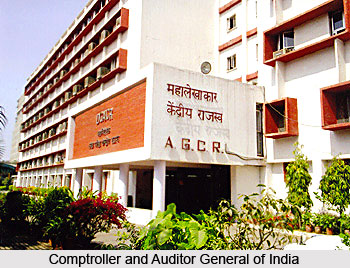Comptroller and Auditor General of India (C&AG) is an important authority created by the Constitution of India. It is mainly responsible for controlling the financial system of the country at the Union as well as the State levels. He has to see to it that the diverse authorities act in regard to all financial matters in accordance with the Constitution and the laws and rules framed there under. Public audit ensures parliamentary control over expenditures voted by the legislature and renders public authorities accountable for the public moneys raised and spent by them to implement policies and programmes approved by the legislature. Accountability and transparency, the two cardinal principles of good governance in a democratic set-up, depend for their observance, to a large extent, on how well the public audit function is discharged. It is for this reason that the C&AG has been given special status by the Constitution in articles 148 to 152. It is his responsibility to ensure that money is spent and revenue rises not only in accordance with the law, but also with due regard to economy, efficiency and effectiveness. The C&AG is the constitutional authority entrusted with the high responsibility of maintaining probity in the use of public funds.
 Article 148 of the Constitution of India provides for a Comptroller and Auditor-General of India who shall be appointed by the Indian President by warrant under his hand and seal. His term of office is six years or up to the age of 65 years.
Article 148 of the Constitution of India provides for a Comptroller and Auditor-General of India who shall be appointed by the Indian President by warrant under his hand and seal. His term of office is six years or up to the age of 65 years.
Independence of the office of C&AG
To ensure the independence of this office from the executive government of the day, it has been provided that the Comptroller and Auditor General shall not be removed from his office except on grounds of proved misbehaviour or incapacity, on an address passed by each of the two Houses of Parliament by two thirds majority of those present and voting and a majority of the total membership of each House being presented to the President in the same manner as applicable to the judges of the Supreme Court of India under article 124(4). Also, the Comptroller and Auditor General has been made ineligible for any other office under the Government of India or any State Government. His salary etc. is left to be determined by Indian Parliament by law.
The salary, etc. of Comptroller and Auditor General have been equated with the judges of the Supreme Court of India. The service conditions of those serving in the Audit and Accounts Department and the administrative powers of the Comptroller and Auditor General are to be laid down by the President by rules framed after consultation with the Comptroller and Auditor General. The administrative expenses of the office of the Comptroller and Auditor General are to be charged upon the Consolidated Fund of India.
Functions of C&AG
As the most important instrument of accountability, the Comptroller and Auditor General has a dual role to perform- as an agency on behalf of the Legislature to ensure that the executive complies with the various laws passed by the Legislature in letter and spirit, and secondly, on behalf of the Executive to ensure compliance by subordinate authorities with the rules and orders issued by it. He is empowered to make rules for carrying out the provisions relating to the maintenance of accounts; make regulations for carrying out the provisions relating to the scope and extent of audit, including lying down for the guidance of the Government departments the general principles of Government accounting and the broad principles in regard to audit of receipts and expenditure; requisitioning of all records of the auditee departments/organisations; access the computer systems of the auditees and to download and use electronic data either in site or off site; review the development of computer systems of auditees and suggest/enforce controls; the appointment of external auditors engaged by the auditees for meeting any statutory requirements but only with reference to Government companies; to supervise and regulate external auditors` work under the Indian Companies Act; dispense with, when circumstances so warrant, any part of detailed audit of any accounts or class of transactions and to apply such limited check in relation to such accounts or transactions as he may determine.
While fulfilling his constitutional obligations, the Comptroller and Auditor General of India conducts the following types of audit: Financial Audit, Compliance Audit, Performance Audit and EDP Audit. Further, the Comptroller and Auditor General of India undertake Special Audit at the request of the Government.
Thus it can be seen how the Comptroller and Auditor General of India enhances the accountability of the Parliament and State Legislatures of India by carrying out audits n the public sector organisations.




















